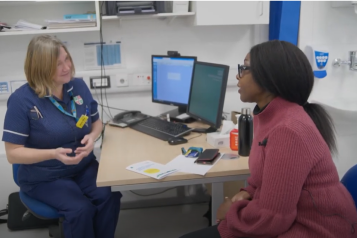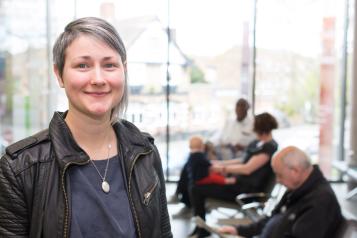Ofsted and CQC publish inspection report of Milton Keynes SEND services
The inspection found that the way services are run currently 'lead[s] to inconsistent experiences and outcomes for children and young people with special educational needs and/or disabilities (SEND). The local area partnership must work jointly to make improvements.'

Background
Milton Keynes City Council and the Bedfordshire, Luton and Milton Keynes Integrated Care Board (ICB) are jointly responsible for the planning and commissioning of services for children and young people with SEND in Milton Keynes.
What does the Ofsted/Care Quality Commission (CQC) report say?
- Health and care needs are not always clear in a child or young person’s individual Education, Health and Care plan (EHCP). For example, most EHC plans do not contain health and care outcomes, even when children and young people have demonstrable needs. This means that schools often lack the expert advice and support required to ensure the full ranges of a child’s needs are met. In addition, the unique needs of children with SEND receiving support from frontline social work teams are not routinely considered within their plans.
- The quality an relevance of EHC plans vary considerably. The voice of children and young people is not always captured meaningfully, although there are some better examples of this for those who attend high education college.
- 'Multi-agency working' (different providers for different services) is not always effective. Sometimes emerging mental and physical health needs are not identified quickly enough. This can be due to a lack of understanding of young people’s needs by some practitioners or about how to make the right onward referrals into appropriate health services.
- The Healthy Child Programme has been modified due to staffing capacity issues within the Health Visiting Service. The impact is missed opportunities for the early identification of emerging SEND in the youngest children.
- Less than half the eligible children and young people with a learning disability have been offered an annual health check. This sometimes results in needs not being identified as quickly as they could be.
- There is no single neurodevelopmental assessment pathway. For children and young people with features of both autism and ADHD, this means they have to be assessed on both pathways. This results in duplication, ineffective use of resource and parents and carers having to repeat their stories of their children’s needs and lived experiences.
- Speech and language services delivered across the local area are not joined up in a way that always meets the needs of children and young people. For example, when children and young people move from early years to school age, a new referral has to be made, which often means there is a long wait for a further assessment and intervention. This increases the risk that the right support will not always be in place at the right time. Too many school-aged children and young people are waiting over a year for a speech and language therapy assessment.
- Health leaders do not always have effective oversight of the delivery of therapy services in special school provisions. For example, special schools commission therapy services privately. There is no system in place to monitor the quality of this, and to make sure that children and young people are having their needs met.
- Occupational therapy and physiotherapy services see children and young people for timely assessments and intervention. Effective speech and language therapy is also in place for children in early years.
- The attention deficit hyperactivity disorder (ADHD) pathway, delivered by the Child and Adolescent Mental Health Services, has undergone a period of transformation. Increased staffing and the use of a screening tool to ensure that the right children and young people are on a diagnostic pathway, has resulted in a significant improvement in waiting times.
- When mental health needs are identified and a referral to the ‘Single Point of Access’ is made, children, young people and their families receive helpful support from mental health services. This is both in terms of signposting to the right services as well as benefiting from appropriate intervention to meet specific needs.
- The majority of children receiving social care support from the children with disabilities team receive a high-quality service. For example, children living in residential special schools outside of Milton Keynes, who are some of the most vulnerable children, receive well-considered oversight from this team.
Read the full Ofsted/CQC report
Milton Keynes SEND services report
Tell us your experience of SEND services in Milton Keynes
Complete our online feedback form
Image credit: Anita Jankovic, Unsplash

